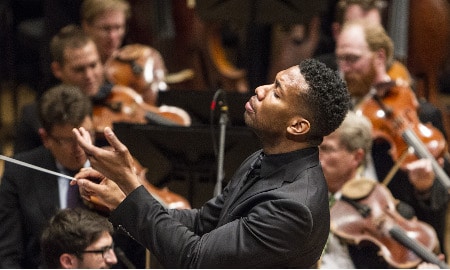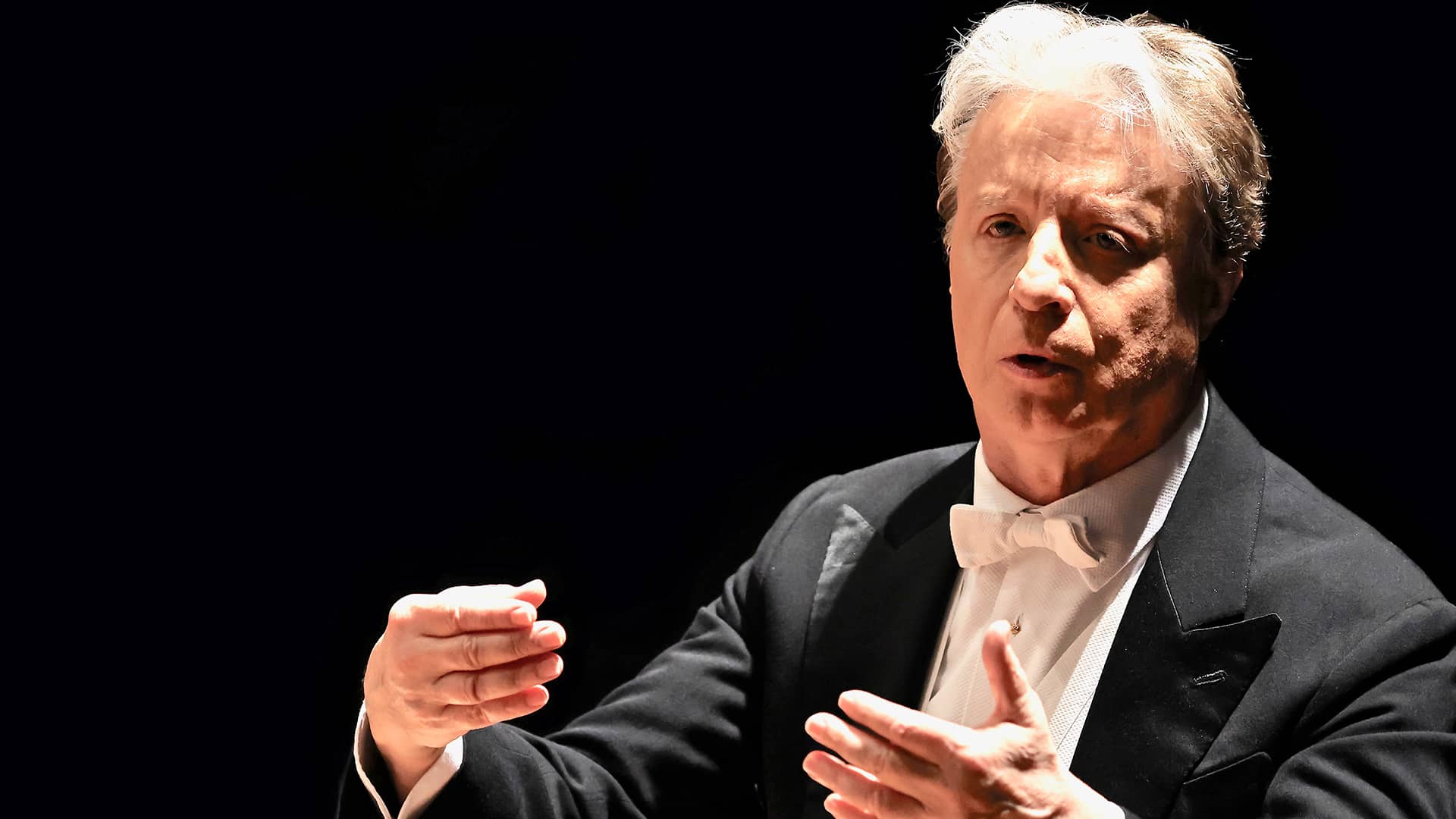Four African-American conductors review the situation
mainA live conversation among four American conductors across generational lines- sharing their unique stories navigating the elusive profession of orchestral conducting, and perspectives on classical music as a unifying art form for the future.
Roderick Cox, recent winner of the Solti award, has asked three colleagues of different generations to reflect on their careers. The participants in this converstions are:
Thomas Wilkins, Music Director of the Omaha Symphony and Hollywood Bowl Orchestra
Michael Morgan, Music Director of the Oakland Symphony
Jonathon Heyward, Chief Conductor Designate of the Nordwestdeutsche Philharmonie







Comments